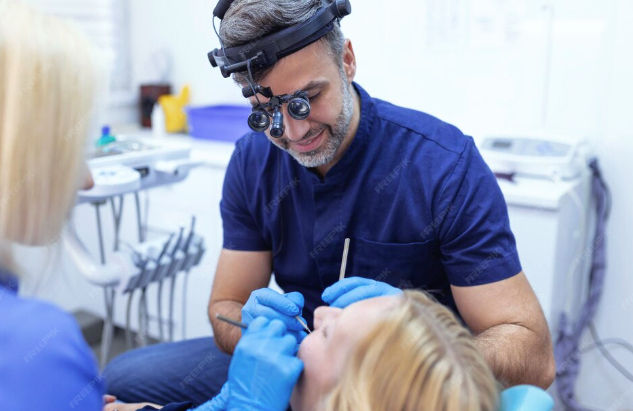How the GED Can Help You Become a Dental Hygienist in the U.S.
- Alex Gomes

- Sep 7, 2025
- 4 min read
A guide for immigrants who need to align their academic background before college

ToothTalk by Alex has conducted a detailed survey of colleges, technical schools, and Dental Hygiene programs to help you navigate this crucial stage. If your goal is to work as a dental hygienist and you don’t yet have a U.S. high school diploma, the most direct path begins with earning a high school equivalency (GED or HiSET) and then completing the required college-level courses for the Dental Hygiene program. Below, we explain in clear language what the GED does for you, how adult education programs work for immigrants, which courses you’ll need to take after the GED to align your curriculum (and why they matter), and a realistic outline of the time and costs involved — all based on official information from colleges, universities, and the ToothTalk by Alex survey.
The GED is not a “science course”; it is a four-part exam (Language/Reading, Math, Science, and Social Studies) that proves you have the equivalent of a U.S. high school education. Across Georgia — and the U.S. in general — many technical colleges and universities offer free preparation classes through their Adult Education or Continuing Education departments. These programs include in-person or online classes, official practice tests, career support, and sometimes connections to technical training programs that accelerate entry into the workforce. For immigrants, this is especially useful because you usually do not need to present a diploma from your home country — the GED replaces that requirement so you can start college.
As for the exam itself: you can take each of the four parts separately. Registration and scheduling are handled through the official GED/Pearson Vue website. The current cost is about $46 per subject (around $184 for all four). Some states, including Georgia, offer grants to cover this cost for residents, but using these benefits is optional. You can also pay directly for your exams. A practical advantage is that the GED can be taken either in person at official testing centers or online from home with remote proctoring, as long as you have a computer, webcam, and stable internet.
Once you complete the GED, the next step is to turn that certificate into college credits and a GPA. The GED itself does not generate a GPA. Instead, it allows you to enroll in college courses at institutions such as Athens Technical College, Atlanta Technical College, Columbus Technical College, Lanier Technical College, Savannah Technical College, Wiregrass Technical College, Georgia State University, Augusta University, Clayton State University, Albany State University, and many others. In these colleges and universities, you will take prerequisite courses required for Dental Hygiene admission. Your grades in these courses will form your GPA, which is the key factor in determining your competitiveness for acceptance into Dental Hygiene programs.
Which courses will you need to complete? Most Dental Hygiene programs, whether at a technical college or a university, require Anatomy and Physiology I and II (with labs), Microbiology (with lab), and Chemistry (with lab), in addition to general education requirements like English Composition, Math, Psychology, Communication, and a Humanities elective. For example, typical course codes include BIOL 2113/2113L (A&P I), BIOL 2114/2114L (A&P II), BIOL 2117/2117L (Microbiology), and Chemistry options aligned with the curriculum. These courses must be completed at the college level (or through approved transfer credit) and often have a time limit — for instance, science courses may need to have been completed within the past 5–7 years. Admission to the professional Dental Hygiene program is competitive and usually requires not only a strong GPA but also attending an information session, submitting required documents, and completing a program application review.
How long does this process take? There’s no fixed timeline, but realistic estimates suggest: preparing for and passing the GED may take anywhere from 2–6 months, depending on your English level and study schedule. After the GED, completing science prerequisites (A&P I and II with labs, Microbiology, Chemistry I with lab) typically requires 1–2 years, depending on whether you take courses part-time or full-time. Full-time study may shorten this timeline, but labs often limit scheduling flexibility. Many programs, including those at Georgia State University and technical colleges across the state, require a minimum cumulative GPA (often around 3.0) for eligibility. Careful planning is essential.
For immigrants, what changes in practice? To attend GED prep classes, you usually only need a valid government-issued ID and to meet the age requirement (18+; students 16–17 must meet special rules). You can take the GED exam whether or not you apply for financial aid benefits. Using state-funded options, like the HOPE HSE Grant in Georgia, is optional. For enrolling in college-level courses, however, institutions may require additional documentation such as proof of residency, ITIN/SSN for financial aid processing, or immigration status if applying for federal assistance. The key point: GED and Adult Education programs are open to immigrants and provide an educational pathway toward college admission.
Finally, some practical advice: connect with an Adult Education center near you (many colleges across Georgia and the U.S. host them) to schedule an orientation. If your English skills need strengthening, consider ESL (English as a Second Language) classes first — this can save you time later when taking science courses with labs. Once you earn your GED, prioritize Anatomy & Physiology I with lab, since it is a prerequisite for Microbiology and central to Dental Hygiene clinical training. Keep all documents organized (ID, GED transcripts, ESL certificates, CPR certification if required, etc.), as they will be necessary for the selection process.
The GED is not the final goal, but it is the first official step that unlocks your pathway: with it, you gain access to college, build your GPA through required courses, and position yourself for acceptance into competitive Dental Hygiene programs across Georgia and beyond.




Comments